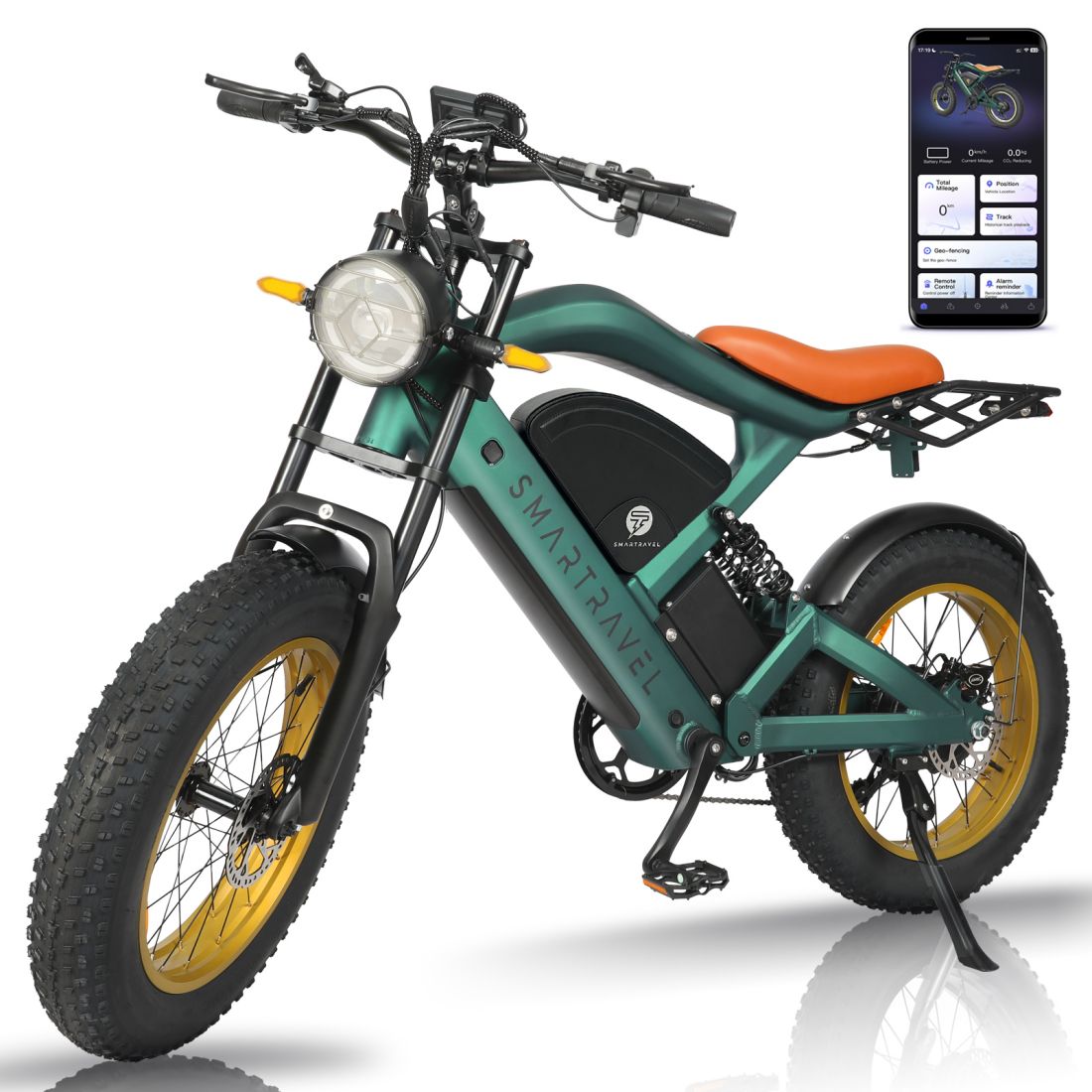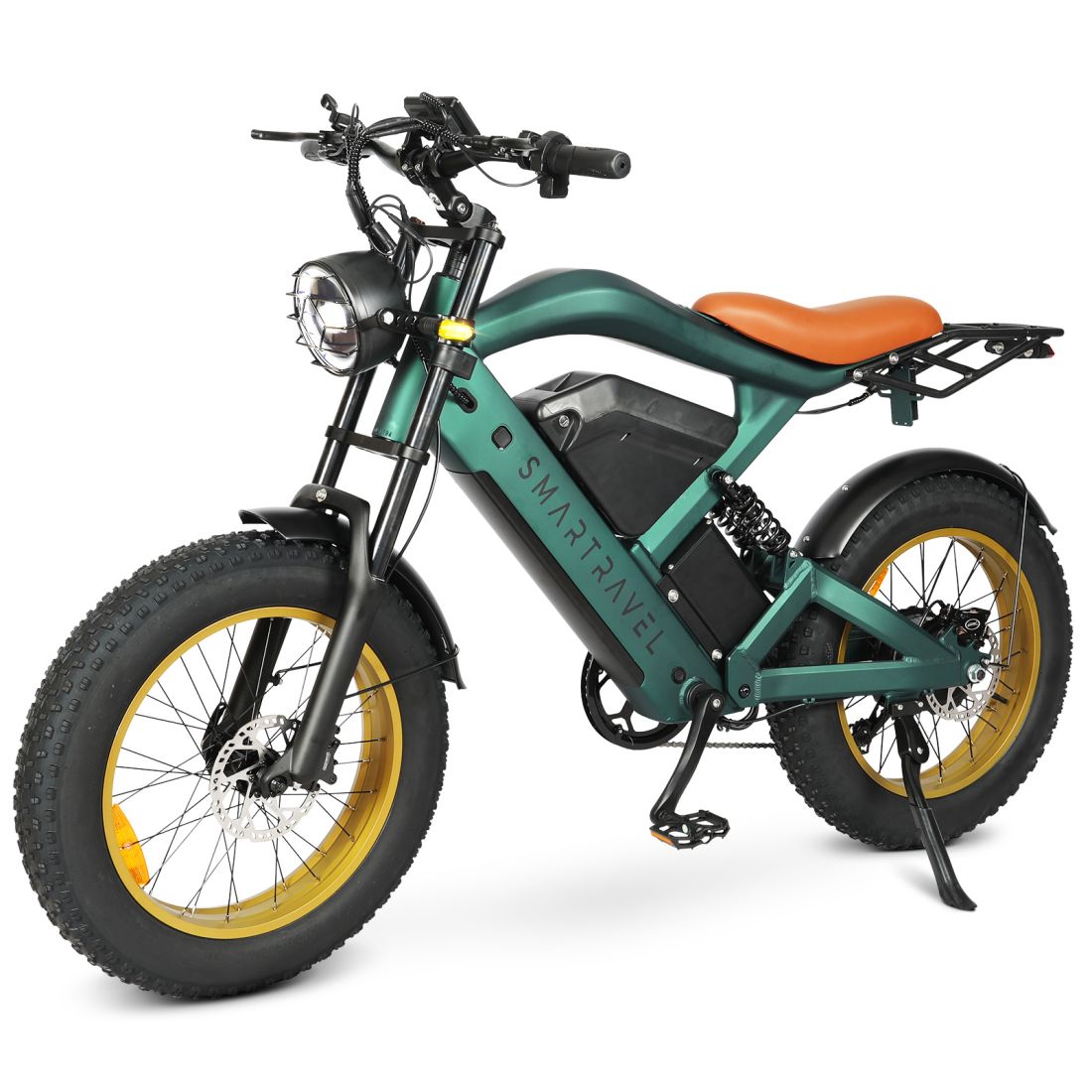How to choose the best e-bike

When you're shopping for an electric bike on an e-bike website, you're faced with so many different options - it can be overwhelming to know where to start. In that case, I really recommend reading through this whole article. It'll give you some great guidance and recommendations to help you choose the right e-bike.

First up, think about how you plan to use the bike. Are you looking for something for your daily commute, for leisurely rides and sightseeing, or for exercise and fitness? That will help determine the type of e-bike you need. If it's mainly for getting around town, you'll want one built for that. If you want to ride on different terrain and trails, a mountain e-bike would be better. And if you're a woman, a step-through frame might be more convenient.
Another big factor is the battery range - how far the bike can go on a single charge.
Some models can do 30-50 miles, while others have an impressive 50-80 mile range. If you're planning longer recreational rides, you'll probably want to go for one with the longer range.
The motor power is super important too. More powerful motors provide better acceleration, hill-climbing, and top speed. But you also want to look at the torque, which affects how much power the motor can deliver, especially when starting from a stop or going uphill. And efficient, quiet motors will help maximize your battery life and riding comfort.
The frame size and material are crucial for comfort and handling.
Make sure to get a frame that fits you properly. Aluminum, carbon fiber, and steel are common frame materials, each with their own pros and cons in terms of weight, strength, and ride quality.
Aluminum - Aluminum bike frames are really light, don't rust easily, and have a nice balance of strength and flexibility. A lot of electric bikes use aluminum frames because of these features.
Carbon Fiber - Carbon fiber frames are super lightweight and also incredibly strong for how light they are. They give you a high-performance, responsive ride, but they're usually more expensive than aluminum.
Steel - Steel frames are known for being super tough and durable. They weigh more than aluminum or carbon fiber, but they can provide a smooth, stable ride.
Finally, consider other key features like the brakes, gears, lights, display, and accessory mounts. Match those up with how you plan to use the bike.
Braking System:
The brakes are super important for safety and being able to control the bike. Electric bikes can have mechanical disc brakes, hydraulic disc brakes, or even a regenerative braking system that uses the motor to help slow you down. You'll want to look at how well the brakes work, how responsive they are, and how reliable they are based on how you're gonna be riding.
Gearing:
The gears on the bike affect how much power you get and how fast you can go, as well as how easy it is to climb hills. Electric bikes can have a fixed gear, a single speed, or multiple speeds with a derailleur or an internal gear hub. You'll want to make sure the gears match up with the kind of riding you'll be doing and the terrain you'll be riding on.
Lighting System:
Having good front and rear lights is key for being seen, especially if you're riding at night or in low light. You'll want to look at how bright the lights are, the beam pattern, and how long the battery lasts.
Display and Controls:
A lot of electric bikes come with a digital display that shows your speed, distance, battery life, and assist modes. Where the display is placed and how easy it is to use the controls is important.
Accessory Mounts:
Features like phone mounts, cargo racks, fenders, and kickstands let you customize the electric bike to fit your needs and preferences.
Doing a thorough evaluation of all these factors will help you find the perfect electric bike to meet your specific needs and riding style. Take your time and don't be afraid to ask lots of questions - that's the best way to end up with an e-bike you'll really enjoy.



















